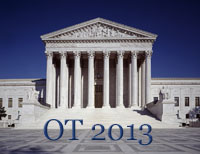In August, Attorney General Eric Holder delivered a widely noted address to the American Bar Association that seemed to promise significant changes in federal prosecutorial policies. I wrote these reactions for the Federal Sentencing Reporter.
Following decades in which the U.S. Department of Justice has consistently advocated for a rigid and harsh legalism in criminal justice policy—in which DOJ, in the name of abstract principles of national uniformity, has willfully disregarded the devastating impact of its charging, plea-bargaining, and sentencing practices on real-life human beings—Attorney General Holder’s ABA address seems a breath of fresh air. He calls for a more flexible federal criminal justice system, in which prosecutorial charging priorities are more specifically tailored to meet local needs, in which sentencing is more individualized to the offender and prosecutors sometimes forego mandatory minimum sentences, and in which individual U.S. Attorney Offices experiment with new diversion programs as an alternative to conventional case-processing. Holder believes—correctly, I think—that a more flexible and pragmatic system can achieve better public-safety results at less cost than a system in which preserving the integrity of the federal sentencing guidelines is the overriding value.
Through Holder’s address, DOJ offers its most prominent and unequivocal endorsement yet of an emerging new criminal justice paradigm.
 (This is another post in our series, Looking Back at the U.S. Supreme Court’s 2013 Term.)
(This is another post in our series, Looking Back at the U.S. Supreme Court’s 2013 Term.)